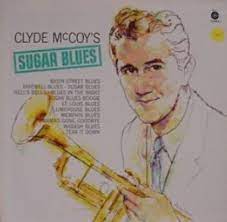
Daily Dose Of Jazz…
Clyde Lee McCoy was born December 29, 1903 in Ashland, Kentucky to the family that feuded with the Hatfields. He began mastering the trumpet without formal instruction, after the family moved to Portsmouth, Ohio in 1912. This led him to perform regularly at church and school affairs. Five years later he was performing on the Cincinnati riverboats, and on the Mississippi River side-wheelers the Island Queen and the Bernard McSwain. He became one of the youngest musicians on the river at age 14.
In 1920, accepting an invitation for a small band to play at a Knoxville, Tennessee resort, his Chicago Orchestra rehearsed on the train and won the approval of George Whittle and the patrons of the Whittle Springs Hotel and Spa. After a two month engagement the band officially became known as the Clyde McCoy Orchestra.
In the late 1920s McCoy developed the signature “wah-wah” sound by fluttering a Harmon mute in the bell of his trumpet. In 1967, a similar effect was made for electric guitar with the introduction of the Vox Clyde McCoy Wah-Wah Pedal. Having nothing to do with the use or development of the pedal,Clyde’s name was only used for promotion.
Over the course of a seven decade career Clyde was based at various times in New York City, Los Angeles, California and Chicago, Illinois. He is best remembered for his theme song Sugar Blues, written by Clarence Williams and Lucy Fletcher, and also as a co-founder of Down Beat magazine in 1935. The song was performed with vocals by Bob Wills and his Texas Playboys, Fats Waller and Ella Fitzgerald.
Trumpeter and bandleader Clyde McCoy, who has a star on the Holywood Walk of Fame, transitioned on June 11, 1990 in Memphis, Tennessee.
More Posts: bandleader,history,instrumental,jazz,music,trumpet


